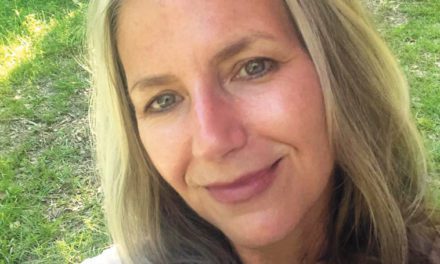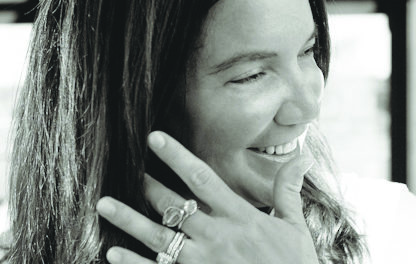On my dad’s side: Thomas Jefferson Shinn of Cabarrus County, NC, had to drop out of school to work the farm when his father died young. Eventually, Thomas accumulated a large amount of property and, according to the genealogy, “a number of slaves.” (I don’t know what that means. Did he own 3, 30, 300? One hesitates to delve.)
He sent all of his sons off to fight for the Confederacy – tried to enlist himself, but was turned away for being too old – and three of them were killed in battle. The genealogy goes on to say that, “after the war, he acted with such dignity that, even with the confusion of Reconstruction, he won the respect of his political enemies and was selected to redeem the county from carpet bag rule, and was sent to the state legislature by a large majority.”
On my mom’s side: Colonel Christopher Columbus Harris of Decatur, AL, served as an officer in the Confederate Army, was wounded in several battles and imprisoned at Camp Chase. He went home to found a law firm and a national bank, then served a term in the United States Congress. Colonel C.C. Harris is still considered one of the great visionaries and prime movers in the town where I grew up.
What you’ll notice about my ancestors – aside from the fact that their parents were somewhat aspirational (okay, grandiose) when naming children – is that they were impressive individuals… who were also enmeshed in the Confederate cause.
This doesn’t make me particularly remarkable. It just makes me Southern.
Growing up in my mom’s hometown, I heard mention of Colonel C.C. Harris now and again – not so much his wartime experience as his later accomplishments as a civic leader. As for Thomas Jefferson Shinn, I never even knew the guy existed ’til I got involved in a family Facebook group about a year ago, and started doing some research. Neither of these gentlemen played a big role (if any) in my developing notion of what it meant to be Southern, mainly because I just never heard much about them.
What I did hear about, as a young girl in Alabama, were families who had “lost everything in the war.” I heard plenty about “that dreadful Sherman” and “those terrible carpetbaggers” and “that awful Reconstruction”… about homes burned to the ground and young sons lost to their mothers, businesses ruined and women raped by Union soldiers. Growing up Southern, this stuff was just “in the air.” And air like that will bypass your lungs and seep directly into your soul. Pain is pain, even when self-inflicted. Family is family, even when wrong-headed. And home is home, especially when it’s under attack. The South suffered mightily during and after the Civil War, and 100-plus years later, people were still talking about it in my youth.
What we didn’t talk about, on the other hand, was slavery . . . or even Jim Crow, a much more recent evil. We didn’t discuss those things at our house. I don’t think there was anything nefarious going on – though perhaps you could call it a sin of omission. These things just weren’t part of our experience. Neither, of course, were the wartime hardships I listed above, but those hardships were part of our family lore. Our “heritage.” Slavery and Jim Crow? Those were things you learned about in Social Studies class, things that seemed somehow far removed.
I was thinking about this last week as I watched a clip from the flag debate in the SC House – the one that went on ‘til the wee hours. Representative Joe Neal was speaking, and I was riveted by his words.
“I sat and listened all day long with great interest and empathy,” Neal said. “It was all about the Confederate dead. It was not about others who suffered and died too . . . My heritage is based on a group of people who were brought here in chains. Who were denigrated, demagogued, lynched and killed, denied a right to vote, denied the right to even have a family . . . My family was taken here to South Carolina. There were four brothers — that much we know. We know that those four brothers never saw one other again. We know that their children were born on plantations in Sumter and Lower Richland, Kershaw and Richland County, they were never able to have their children because their children were sold away from them . . . I want you to understand that these are the kind of stories that exist in our community. They are stories of pain and suffering that I ask you to consider as you ask me to consider grace on this issue. When that flag stands out front, the entire African American community feels a pain, and that pain is intensified when things happen like Charleston . . .”
As I listened to Rep. Neal, I felt ashamed. Though I’d vocally supported removing the flag from day one, I suddenly realized I hadn’t considered the issue as deeply as it deserved to be. My enthusiasm for moving the flag had been a swift and sure heart-burst, an immediate response to the tragedy at Emanuel AME Church, and to the grace displayed by those families. I believed – and I still believe – it was the only response worthy of those good people once the flag issue was raised, which happened almost immediately. In fact, the absolute rightness of the action seemed crystal clear to me – in a way that few things ever do – and I haven’t doubted it since.
So it came as a shock to me – a gut punch, really – to learn there were so many people like me who disagreed. When I say “like me,” I mean white, lifelong Southerners with Confederate ancestors. The bile they vomited onto the Facebook pages of Sen. Tom Davis and Gov. Nikki Haley last week was truly astounding. Words like “coward,” “traitor,” “panderer” and “weakling” littered the discussion threads, along with others I can’t print in a family publication. The comments were long on rage and short on reason, ill-informed and unbelievably ill-willed. As I read through them, mesmerized, something occurred to me. What they smacked of most – if you read between the angry lines – was plain, old-fashioned hurt pride.
We Southerners know a lot about hurt pride. For a thousand obvious reasons – past and present – it’s part of our DNA, and lots of us walk around with invisible (but heavy) chips on our shoulders. I would venture to say it’s a burden we secretly enjoy, this notion that nobody understands us and everybody’s out to get us. In a strange way, it binds us together in a sort of “us against the world” mentality, a subconscious victims’ society. I believe the lowering of the Confederate flag has fanned that feeling into a frenzy among some of my Southern brethren (and sistren), who imagine that, once again, we’re under attack by outside forces. The fact that they love that feeling – that it gets their rebel blood flowing and sends their self-righteousness soaring – doesn’t help matters. The fact that the flag’s removal was an act of reconciliation made by South Carolinians for South Carolinians seems lost on them, especially in light of the cultural dismantling that’s suddenly sweeping the nation. (More on that in another column. Maybe.)
The thing is, I feel for these people. I love them, even. They are my own. Like me, they probably grew up hearing that the Civil War was “complicated,” that it “wasn’t really about slavery,” that it was about “states’ rights.” These are the soothing things we were told growing up, and only recently did I decide to cut through all the BS out there and go straight to the primary source – the Declaration of Causes of Secession. South Carolina’s is an eloquent document that uses its first half to establish SC’s constitutional right to secede . . . then spends its second half making it 100% clear why the state wanted to secede: to maintain the institution of slavery. Turns out it’s really not complicated at all. That’s a hard truth to face.
Another hard truth? The Confederate flag was conceived as an emblem of white supremacy. And though it later came to symbolize something very different for many of us Southerners – our struggles, our perseverance, the courage of our ancestors, our “rebel” spirit (which we still love to cultivate!) – it never stopped being an emblem of hatred and humiliation for Southerners like Rep. Joe Neal and his family. For that reason alone, it didn’t belong on the grounds of our state Capitol – not in 1961, and not in 2015. I know others disagree, but I think that’s their hurt pride talking.
Hurt pride . . . hurts. But truth heals. Grace heals. Putting the feelings of others before our own? That heals, too. Here in my beloved southland, we all have more healing to do. I’m game if y’all are.







